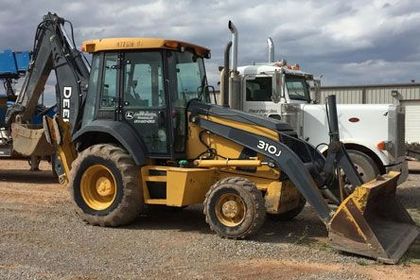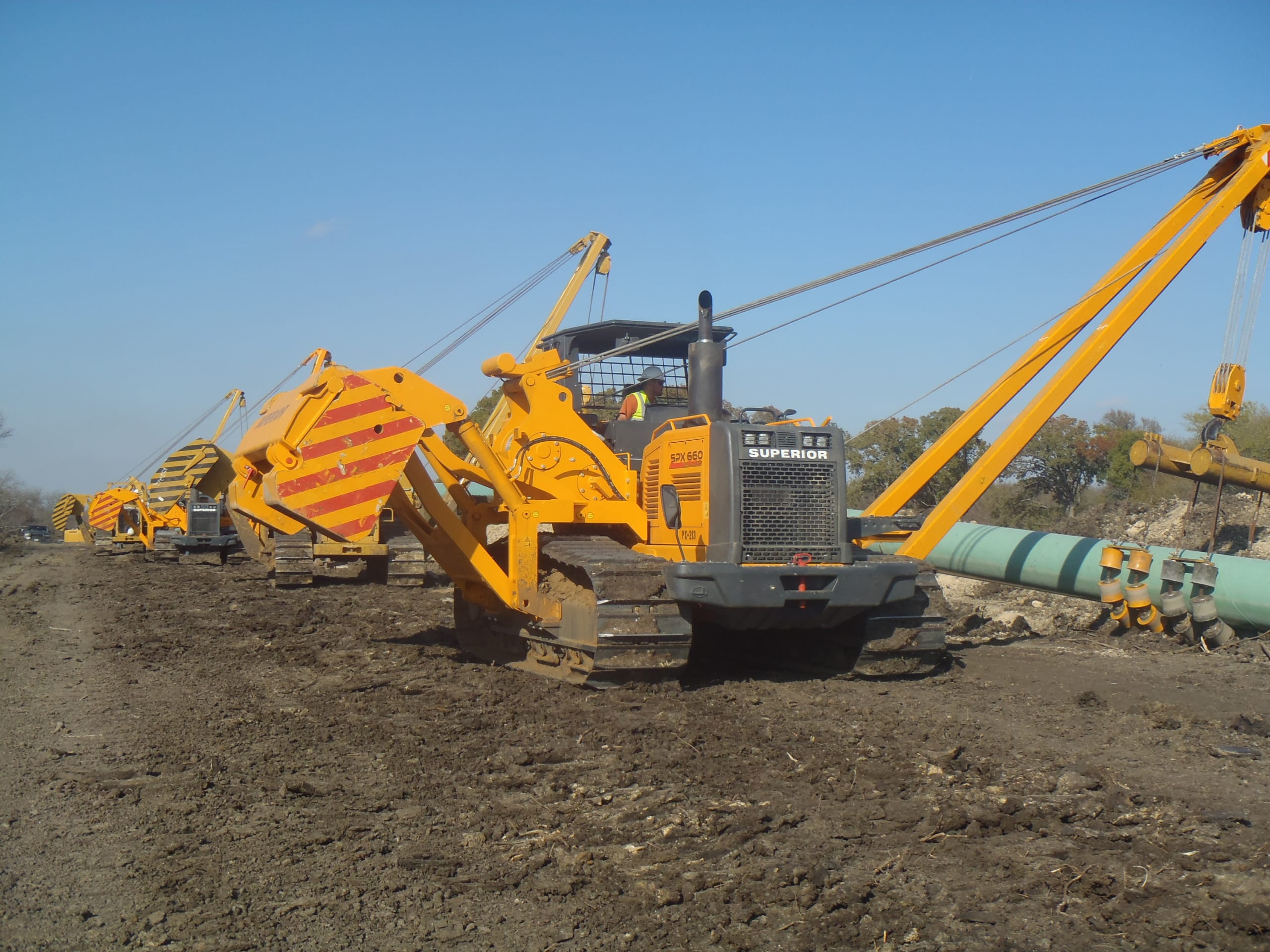Superior Rentals midland: local company profile for field managers
Wiki Article
A Comprehensive Overview to the Numerous Kinds of Oil Field Equipment and Pipeline Equipment Available
The oil and gas market relies greatly on customized equipment for reliable removal and transportation. Different types of machinery, from piercing rigs to tank, play essential functions in this complex procedure. Each item of devices offers distinct features that add to overall operational success. Understanding these parts is necessary for anyone associated with the market. As the sector develops, so as well do the modern technologies that sustain it. What developments are on the perspective?
Drilling Rigs: The Foundation of Oil Exploration
Drilling rigs act as the essential machinery in the domain name of oil expedition, allowing business to access hydrocarbon reserves buried deep underneath the Planet's surface. These rigs come in different kinds, consisting of land rigs, offshore rigs, and mobile devices, each made to run in certain atmospheres. Outfitted with advanced modern technology, piercing rigs can penetrate geological developments with accuracy, making certain efficient resource extraction. The structural integrity and operational abilities of these rigs are essential, as they must stand up to extreme problems and significant stress. Additionally, the selection of a boring gear affects the total task price and timeline, making it an important consideration for oil firms seeking to maximize their exploration efforts and take full advantage of productivity in their operations.Pumps: Necessary for Fluid Activity
In the oil extraction process, the function of pumps is significant, promoting the movement of liquids throughout numerous phases of manufacturing. Pumps are vital for transferring crude oil, water, and other liquids from below ground reservoirs to the surface area and after that with pipes to refineries. They come in numerous kinds, consisting of centrifugal, favorable variation, and submersible pumps, each serving specific purposes based upon the fluid characteristics and functional requirements. Centrifugal pumps are frequently made use of for their performance in high-flow applications, while positive displacement pumps master managing thick fluids. The selection of pump influences total efficiency, functional security, and upkeep expenses. Proper option and upkeep of pumps are essential for enhancing production and decreasing downtime in oil area procedures.Shutoffs: Managing Circulation and Pressure

Shutoffs play an essential duty in managing the circulation and pressure of fluids within oil areas and pipelines. Different types of shutoffs offer distinct applications, each created to satisfy certain functions fundamental for efficient procedure - Superior rentals squeeze tools. Recognizing the qualities and usages of these valves is essential for optimizing system efficiency and safety and security
Kinds of Valves
Necessary components in oil field operations, shutoffs play a crucial function in controlling the flow and pressure of fluids within pipelines and equipment. Different kinds of shutoffs are utilized to fulfill the diverse requirements of oil and gas manufacturing. Typical kinds include gate valves, which supply a straight-line flow and very little pressure decrease; globe shutoffs, recognized for their throttling abilities; and sphere shutoffs, recognized for their fast on/off control. In addition, check valves protect against heartburn, while butterfly valves supply a lightweight remedy for managing circulation. Each valve type is made with certain materials and configurations to endure the harsh problems commonly found in oil areas, guaranteeing reliability and performance in operations. Recognizing these types is vital for efficient system management.Valve Applications and Functions
While different kinds of valves offer distinct functions, their primary applications focus on controlling flow and pressure within oil and gas systems. Shutoffs such as gateway, globe, and ball valves manage liquid motion, making certain peak performance and safety and security. Entrance shutoffs are generally utilized for on/off control, offering marginal circulation resistance. World valves, on the various other hand, offer accurate flow guideline, making them appropriate for throttling applications. Round shutoffs are favored for their fast operation and tight sealing capacities. In addition, stress alleviation shutoffs are crucial for stopping system overpressure, guarding tools stability. In general, the ideal option and application of shutoffs improve functional performance, ensuring the dependable transport of oil and gas via pipes and handling facilities.Compressors: Enhancing Gas Transportation
Compressors play an essential function in the effective transport of gas, making certain that it relocates smoothly via pipelines over fars away. These devices increase the pressure of natural gas, allowing it to conquer friction and altitude adjustments within the pipeline system. Furthermore, compressors assist in the harmonizing of supply and need, suiting changes in consumption and production prices. Numerous types of compressors are used in the sector, including centrifugal, reciprocating, and rotating screw compressors, each offering distinctive advantages based on the functional demands. Normal maintenance of these compressors is important to optimize efficiency and decrease downtime, ultimately adding to a dependable gas transportation network. Their vital feature highlights the relevance of compressors in the overall oil and gas infrastructure.Storage Tanks: Safe and Effective Fluid Administration
Efficient transport of gas counts on different support group, among which is the correct monitoring of storage containers. These tanks play an important function in securely having liquids, guaranteeing that operational performance is maintained while decreasing ecological risks. Built from sturdy products, they are designed to withstand high stress and harsh aspects. Effectively sized and purposefully situated, tank help with the smooth flow of gas and various other liquids, stopping traffic jams in supply chains. Routine maintenance and tracking are critical to identify leakages or structural issues, advertising security and compliance with regulatory criteria. Eventually, the effective management of storage tanks is critical for the total stability and reliability of the oil and gas sector's fluid handling systems.
Pipeline Systems: Framework for Transportation
Pipeline systems work as the backbone of the oil and demolition excavator gas sector, assisting in the efficient transport of hydrocarbons over large distances. These systems are composed of various parts, consisting of pipes, shutoffs, pumps, and compressors, all thoroughly designed to assure seamless circulation. The materials utilized in pipeline construction, usually steel or high-density polyethylene, are chosen for resilience and resistance to corrosion. Pipeline networks can extend across land and water, linking production sites to refineries and circulation. Furthermore, progressed innovation makes it possible for real-time tracking of circulation rates and pressure degrees, enhancing operational effectiveness. The critical placement of these pipes decreases environmental effect while taking full advantage of source accessibility, consequently playing a crucial role in meeting power needs internationally.Security Equipment: Making Sure Worker and Environmental Management
The procedure of pipeline systems, while vital for energy transportation, additionally presents substantial safety and security challenges for employees and the atmosphere. Security equipment plays a significant function in alleviating these dangers. Personal protective tools (PPE) such as helmets, handwear covers, and non-slip footwear safeguards workers from physical dangers. In addition, gas discovery systems check for leakages, making certain that unsafe substances do not position a risk to workers or the surrounding environment. Emergency closure systems are crucial for promptly stopping procedures throughout a situation, preventing potential calamities. Spill control materials, including absorbents and obstacles, are basic for decreasing ecological effect. In general, buying all-encompassing safety tools is essential for keeping operational integrity and protecting both workers and browse around this site the atmosphere in the oil and gas field.
Often Asked Inquiries
How Do I Pick the Right Oil Field Equipment for My Project?
Picking the right oil area devices involves reviewing project specs, budget plan restraints, and operational demands. Take into consideration elements such as tools dependability, compatibility with existing systems, and the supplier's track record to guarantee peak performance and safety.What Are the Upkeep Requirements for Oil Field Equipment?
Maintenance requirements for oil area equipment include regular assessments, lubrication, and prompt repairs. Operators ought to likewise stick to producer guidelines, display efficiency metrics, and warranty conformity with safety and security guidelines to improve longevity and performance.
How Can I Ensure Compliance With Environmental Regulations?
To guarantee compliance with ecological regulations, business need to conduct normal audits, execute finest methods, purchase training, maintain proper paperwork, and remain updated on legislation (Superior Oilfield Rentals). Partnership with environmental companies can additionally improve adherence to regulationsWhat Is the Average Lifespan of Pipeline Equipment?
The ordinary life-span of pipeline devices commonly varies from 20 to half a century, depending upon variables such content as worldly high quality, ecological conditions, and upkeep practices. Routine examinations can significantly affect durability and functional efficiency.Just how Do I Safely Deliver Oil Field Equipment to Remote Locations?
Transporting oil area tools to remote locations needs cautious preparation, consisting of course assessment, protecting licenses, making use of ideal lorries, and making certain safety protocols are complied with. Appropriate training and communication amongst crews are crucial for effective transport.Report this wiki page